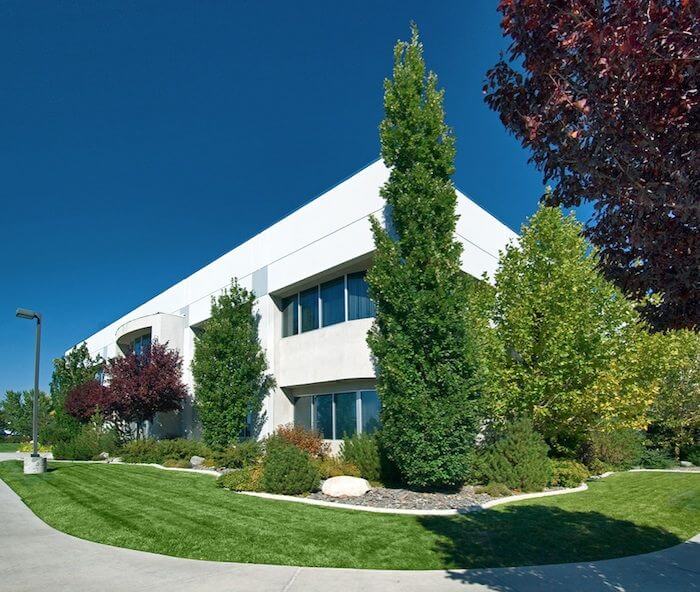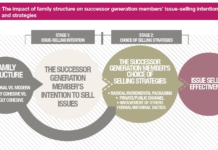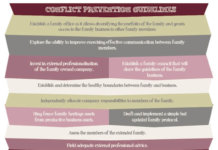A Narrative by Tom White, President and CEO of Haws Corporation, USA
At first glance, the Haws Corporation appears to be a typically successful family-owned business; one that has grown internationally for over a century of operation and is now run by the family’s 3rd and 4th generations. Founded in 1906 with Luther Haws invention of the drinking fountain, the family business continued forward by developing an extensive indoor and outdoor product offering. In 1950 the Haws Corporation expanded into emergency drench showers and eyewashes for industrial first aid.
While headquartered in the United States, the business serves global markets from its satellite operations in Europe, Asia, and South America. Today, the business is closely held by six members of the third and fourth generation. What few know is that the Haws family business has recently overcome a challenging ordeal: The family was shaken by a serious internal conflict, which undoubtedly could have dissolved the family’s sense of trust had they not shown incredible aptitude in tackling the emotional journey to recovery. In a compelling narrative, Tom White, President and CEO of Haws Corporation, tells us the story of how his family overcame conflict and put family governance in place so it would never happen again.
The Business and the Conflict
I entered my wife’s family business in 1993 not knowing what an intense and interesting journey lay ahead of me. My wife is part of the fourth generation of the Haws Corporation and my sister-in-law is also working with the family business.
This story centres around a conflict that originated in 2005 and that would change the course of our family and business forever. My brother-in-law was working at a company wherein Haws was a minority partner. It was a very small business and he had been working directly with the majority owner to learn the business and represent family ownership in the investment. My brother-in-law and the owner had very different views about how the business should be run and over time their relationship deteriorated. There was no active management of the situation by other family members, and no steps were taken to resolve the growing conflict between the two men. By the time I was asked to meet with them to attempt to resolve the problem, it was beyond repair and my brother-in-law was terminated.
Understandably, his being fired caused a tremendous amount of conflict within the family. Our relationships were very strained as my brother-in-law had been deeply hurt and felt betrayed. He was only guilty of trying to do what he thought was right for the business and no one had taken enough of an interest to prevent the unravelling of his relationship with our business partner. I was blamed for letting the termination happen, yet, at the time I felt helpless to prevent it.
Furthermore, I resented having been put in a position of managing a situation that was so far beyond repair – especially one with such serious consequences. But now it was time to begin the long journey to heal our family and regain lost trust. This was our opportunity to work together to prevent such a disaster from recurring.
The Recovery
To my brother-in-law’s credit, he took the lead and began researching family business issues. He was determined to ensure that this mistake was never repeated. In spite of our own strained relationship, I was fully supportive and pledged to help him. As he read into the topic, he learned that the primary reason for the failure that we experienced was our lack of family governance. He then gave me a book to read on the subject and after some discussion with the family, we decided to establish a family council. While the initial goal of establishing a system of governance was to prevent another disaster, we soon learned that the family council generally empowered us to become better owners and better stewards of the family business.
Our family council was established in 2007 after interviewing and selecting a facilitating team for our family. This was an important step because we had to select someone with whom the whole family was to feel comfortable. Each member, young and old, male and female, needed to trust and connect with our facilitators or our family council meetings would not have become meaningful or productive. We did not want to spend effort and expense to simply go through the motions; we wanted to do the hard work that could truly benefit our future generations.
Our initial meetings were focused on education, learning how to communicate, and expressing our shared desires for the business. Meeting twice a year, we spent the time to work and have fun and focus on our relationships. Doing so really helped us to rebuild the trust that had been shaken by the conflict and to truly enjoy being together again. Soon we voted to establish a Board of Directors to bring more accountability and outside expertise to our business. As a family, we agreed upon a shared set of values and guiding principles that we used to establish our family creed. This acted as a set of rules for how the family would relate to the business in a healthy way.
Avoiding Past Mistakes with the 5th Generation
Our family agreed that educating the next generation was important to us and we invited them to join the family council as teenagers. We have taught them to see the business as a family responsibility rather than a family entitlement. While they have learned that the business provides economic benefit to the family, it is also a legacy, which the family is honoured to be a part of and is thus obligated to serve. The children are taught that they are not entitled to work in the business. In fact, they may only work in the business if they are at least as capable as the most qualified applicant. This prevents putting family members in positions where they may fail or cause poor morale within the company.
The oldest members of our next generation (14, 15, and 18 years old) are well aware of some of the conflicts that we have experienced. They have seen what kind of damage can be done when we manage the business but not our family. We believe that helps them to appreciate the importance of the work that we do in our family council. Conflict is inevitable in any family or business and we cannot prevent it from occurring. But the more we do to teach our kids and ourselves how to embrace and undergo internal struggles, the less of a threat it will be. In fact, given the tools to manage conflict in a healthy way, we can have better debates about how we want to contribute to the legacy that is our family business.
Educating our next generation prepares them to be better shareholders because they learn to value their ownership in more than just a monetary way. It also allows the senior generations to evaluate family members for potential roles in the business and on the board. For those who choose to work outside the family business, the education that they receive will serve them well in any career. We understand the value of an educated workforce and spend a lot of effort developing our employees. Why would we not develop our own children?
Sharing the Lessons
Our family council meetings provide ample opportunities for aunts, uncles, nieces, and nephews to share their personal feelings about the business and what it means to them. These council meetings offer grandparents a chance to share history and their own experience in the business. Taking this time to invest in our families has helped to heal old wounds, deepen our relationships, and shift our focus from some of the negative feelings of the past to the positive feelings we get from watching the next generation learn and adopt our values.
We have come a long way. The business is healthy and revenues are continuing to increase whilst we broaden our business portfolio. Additionally, the non-family executives and board members appreciate the stability that the family council has added to the business. But there is still much work to do. During our next family council meeting, we will welcome our new facilitators. Having spent six years with our last facilitation team, we will always be in their debt for the guidance that they provided to our family. We now look for new perspectives and challenges so that we can become better shareholders, operators, and family members. It is my hope that other families can learn from our story. They need not repeat the painful mistakes that we experienced in order to appreciate the value of governance for both their businesses and their families.
Tharawat Magazine, Issue 21, 2014













